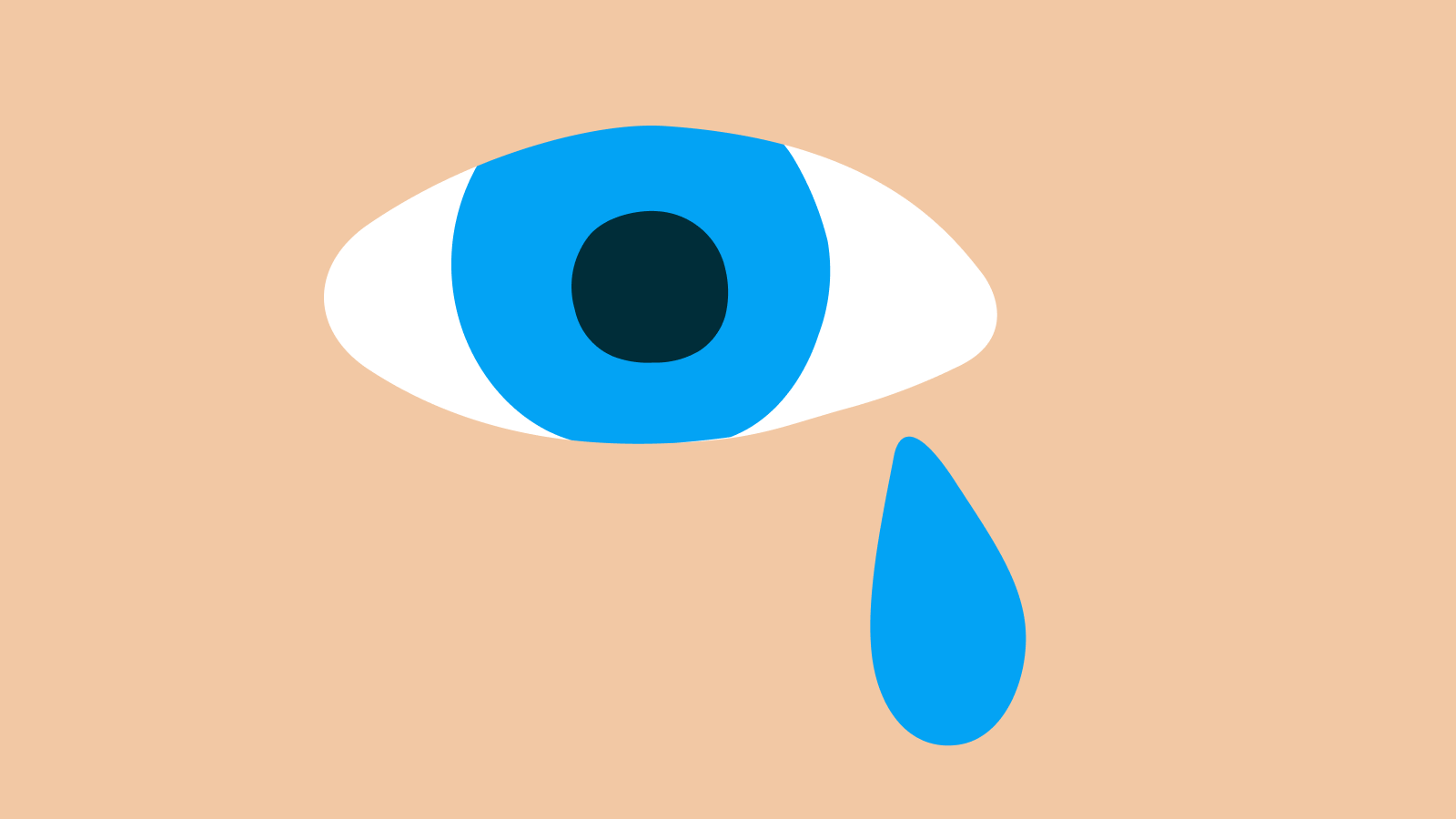Most of us cry from time to time. It’s a healthy way to express how you’re feeling and release built-up stress or sadness. Some people cry more than others, but sometimes, it can become excessive. If you’re crying for no reason or more than you’d like, it’s important to know that help is available if you need it.
Why do we cry?
There are 3 types of tears: basal, reflex and emotional.
1. Basal tears are important for eye health. They stop the eyes drying out and protect eyesight.
2. Reflex tears happen in response to irritation. When we get something in our eyes, our eyes will water with reflex tears to wash away the dirt.
3. Emotional tears happen when we feel strong feelings, like sadness caused by grief or pain, happiness or joy. Lots of animals, like us, make tears to keep their eyes healthy, but emotional crying is uniquely human.
‘Scientists think that crying helped us develop social bonds by letting others know we needed help,’ says Dr Oyefeso. ‘If someone’s crying, people are likely to be kinder and more understanding towards them.’
Can crying make me feel better?
Shedding tears is a natural reaction to negative or positive feelings. ‘Crying is a sign that you’re processing emotions,’ says Dr Oyefeso.
‘It increases endorphins, the feel-good hormones that improve your mood. It can also help you relax by decreasing stress hormones like cortisol. This is why you might feel much better after a good cry.’
Other benefits of crying include:
- Helping us feel more connected to our emotions
- Boosting the immune system by producing antibodies that help fight infections
- Reducing pain by releasing neurochemicals
- Helping process grief
Why do I cry so easily?
Everyone is different when it comes to how easily, how often or why we cry.
‘Babies and young children cry when tired, hungry or frustrated, as they can’t communicate any other way. Teens may cry more due to hormonal changes, and adults might cry more during times of intense stress or sadness,’ explains Dr Oyefeso.
Although crying is usually a natural response to emotional triggers, feeling like you’re crying for no reason can be worrying. There are several key reasons why this can happen:
1. Mental health problems
Crying more often, or without knowing why, may be a sign of a mental health condition like depression, postnatal depression or bipolar disorder.
‘If you’re worried your crying is due to a mental health condition, speak to a doctor or therapist,’ says Dr Oyefeso. ‘They can help you understand what’s going on and identify the best way to address it.’
2. Hormones
Hormonal imbalances can cause changes in mood that might cause you to cry more easily. Changes in hormone levels caused by pregnancy, menopause or premenstrual syndrome (PMS) can all impact your mood.
3. Medication
Sometimes medications can cause changes in mood as a side effect. If your medication causes mood swings, speak to a doctor. They may be able to alter your dosage or switch you to a different medication.
4. Exhaustion
Physical and emotional exhaustion can lower your threshold for crying, so getting plenty of rest can help.
5. Pseudobulbar affect (PBA)
PBA is a condition that causes uncontrollable crying or laughing. It can affect people with Parkinson’s disease, Alzheimer’s disease, traumatic brain injury or stroke.
‘Medication can help regulate outbursts if you have PBA, so if you’re struggling, talk to a doctor or mental health professional,’ Dr Oyefeso advises.
How do I stop crying?
Crying is an important self-soothing mechanism, but sometimes it’s not always convenient to let the tears flow. Dr Oyefeso shares some tips on how to temporarily stop crying:
- Take deep breaths or try some breathing exercises
- Pinch your nose or hold your breath for a few seconds
- Distract yourself by thinking about happy memories or something funny
Remember, while these are temporary techniques to stop crying in the moment, it’s not a good idea to stifle your tears all the time. Crying can be a beneficial way to cope with stress.
When should I seek help?
There are some more serious symptoms to look out for:
- Crying more than usual
- Crying and feeling hopeless or exhausted
- Feeling like you can’t stop crying
- Crying and feeling like you’re going to throw up or have a panic attack
- Crying and blurred vision or chest pain – this could be a sign of a heart attack
‘There are many possible causes of excessive crying, so always see a doctor to determine any underlying medical conditions. Once a medical condition has been ruled out, there are a few different treatment options,’ says Dr Oyefeso.
‘One option is talking therapy, which can help you understand and process your emotions healthily. You may also be prescribed medication to help regulate your mood.
‘Whatever treatment option you choose, it’s important to remember that help is available if you find yourself struggling to control your tears,’ reassures Dr Oyefeso.
This article was medically reviewed by Dr Adenekan Oyefeso, a psychologist at Livi.


